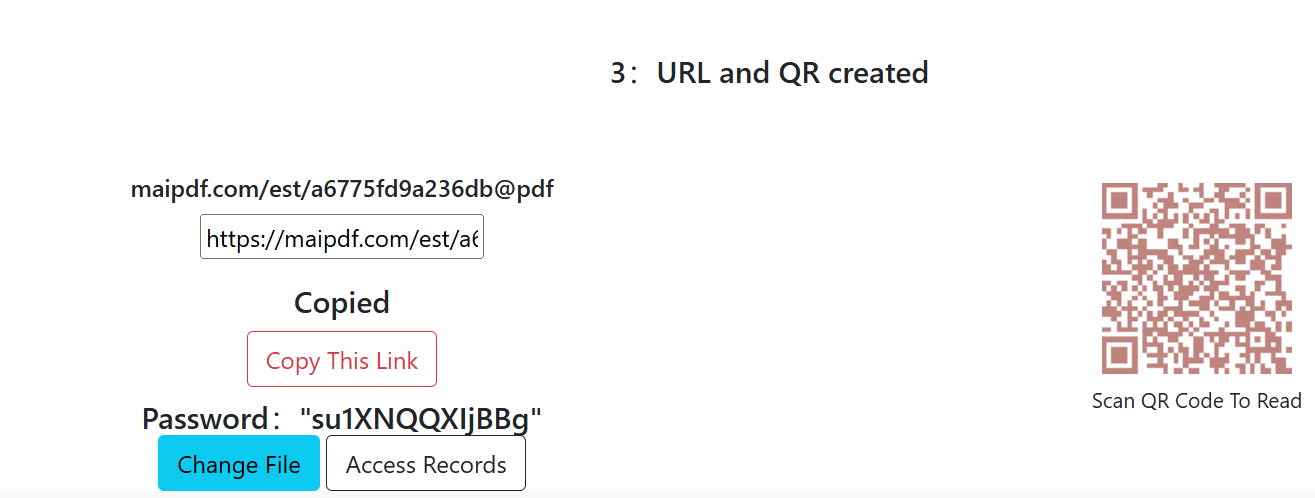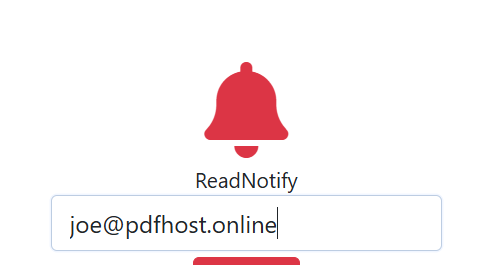MaiPDF Complete Feature Overview: Secure PDF Sharing Made Simple
This comprehensive guide covers all aspects of MaiPDF’s secure PDF sharing platform, from basic features to advanced enterprise capabilities. Whether you’re new to the platform or looking to maximize its potential, this guide provides detailed insights into every feature.
Core Security Features: Protecting Your Documents with Advanced Controls
MaiPDF provides multiple layers of security to ensure your PDF documents are shared safely and accessed only by authorized recipients.
Access Control and Authentication
Email Verification System
- Require email confirmation before document access
- Custom verification messages and branding
- Configurable verification timeout periods
- Bulk email management for team access
View Limitations and Expiration
- Set specific view count limits (1-100 or unlimited)
- Document expiration by date and time
- Access window restrictions (specific hours/days)
- Automatic link deactivation after expiration
Document Protection Technologies
Copy and Print Prevention
- Advanced browser-based protection mechanisms
- Right-click context menu blocking
- Developer tools access prevention
- Keyboard shortcut disabling for copying
Watermarking and Identification
- Dynamic watermarks with recipient information
- Timestamp-based watermark generation
- Custom watermark text and positioning
- Transparent overlay options for readability
Link Generation and QR Code Creation: Modern Sharing Solutions
Transform your PDFs into secure, shareable links with comprehensive tracking and control features.
Secure Link Generation
Link Customization Options
- Custom URL slugs for branded sharing
- Password-protected access options
- Geographic restriction capabilities
- Device-specific access controls

QR Code Technology
QR Code Features
- High-resolution QR code generation
- Customizable size and format options
- Error correction for reliable scanning
- Batch QR code creation for multiple documents
Mobile Integration
- Native QR scanner compatibility
- Instant mobile access to documents
- Cross-platform QR code support
- Social media sharing optimization
Analytics and Tracking: Comprehensive Access Monitoring
Monitor and analyze document access with detailed reporting and real-time notifications.
Access Analytics Dashboard
Real-Time Monitoring
- Live access notifications and alerts
- Geographic access mapping
- Device and browser identification
- Time-based access pattern analysis
Detailed Reporting
- Export access logs in multiple formats
- Custom date range reporting
- User engagement metrics
- Security event tracking
Advanced Tracking Features
Behavioral Analytics
- Document reading time analysis
- Page-by-page viewing statistics
- User interaction tracking
- Bounce rate and engagement metrics

Enterprise and Business Features: Scalable Solutions
Advanced capabilities designed for organizations and business users with enhanced security and management needs.
Team Management
Workspace Organization
- Shared document libraries
- Team-based access controls
- Centralized billing and administration
- Role-based permission management
API and Integration
Developer Tools
- RESTful API for custom integrations
- Webhook support for real-time events
- SDK availability for popular languages
- Comprehensive API documentation
Best Practices and Optimization: Maximizing Platform Benefits
Guidelines for optimal use of MaiPDF features to achieve maximum security and efficiency.
Security Best Practices
Document Preparation
- Optimize PDF file sizes before upload
- Remove sensitive metadata from documents
- Use appropriate security levels for content type
- Regular review and update of access permissions
Performance Optimization
Efficient Sharing Strategies
- Use appropriate view limits for content type
- Implement geographic restrictions when necessary
- Monitor access patterns for optimization opportunities
- Regular cleanup of expired and unused links
This comprehensive guide ensures you can leverage all MaiPDF features effectively while maintaining the highest security standards for your document sharing needs.
Text for a Level 4 heading. This level is often employed to elaborate on specific points or add context to higher-level sections.
Heading Level 4: An Example of a Longer Heading for Complex Subsections
Even at Level 4, headings can vary in length based on the content they represent.
Heading Level 5: Fine-Tuned Subdivisions for Detailed Explanations
Example text under a Level 5 heading. This is where you might add nuanced details or examples within a subsection.
Heading Level 5: When Additional Layers Are Necessary for Clarity
This heading illustrates how deeper nesting can aid in organizing intricate information.
Heading Level 6: Rarely Used but Available for Granular Subdivisions
Text for a Level 6 heading. These are seldom used but can be helpful in highly detailed documentation.
Heading Level 6: Another Example of a Concise Heading at the Deepest Level
Text accompanying a short Level 6 heading, emphasizing brevity and precision.
Heading Level 6: Demonstrating Markdown’s Flexibility for Complex Structures
Even at the deepest heading level, Markdown ensures readability and proper structure.
Heading Level 6: Managing Content Hierarchies with Clear Formatting
Content under this heading highlights the importance of maintaining logical hierarchies in documentation.